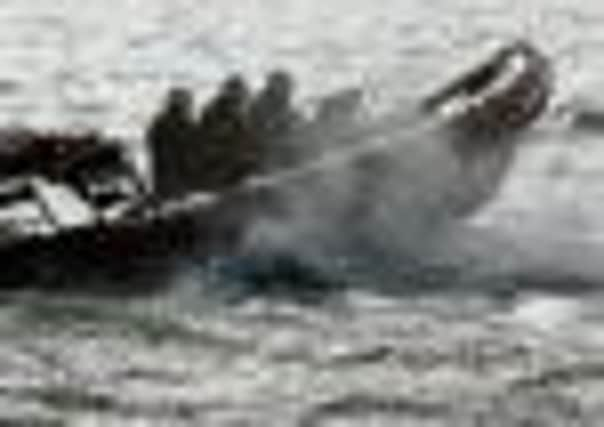Coastguard hit by staff shortage and low morale


A damning report published this morning by Parliament’s transport select committee says the Coalition’s shake-up of the service has left morale damagingly low and skilled staff in worryingly short supply.
The committee warns that plans to amalgamate the service into a number of large centres risks losing invaluable local knowledge from the service and attacks the Government agency responsible for its “confusing, contradictory and complacent” stance.
Advertisement
Hide AdAdvertisement
Hide AdThe Coalition sparked huge outcry in 2010 when it unveiled plans to cut the number of coastguard stations from 18 to eight, and scale back services at many of those to leave just three nationwide with a 24-hour service.
The Humber coastguard station at Bridlington was one of those due to be scaled back to daylight service-only hours.
Widespread objections to the plan saw it radically revised last year, however, with the Bridlington station among those to retain 24-hour service.
Today’s report by the backbench transport committee found there was “a surprising degree of consensus that the coastguard service has to be reformed, with fewer co-ordination centres and greater resilience”.
Advertisement
Hide AdAdvertisement
Hide AdBut the MPs made clear the way the Government has gone about reform has left coastguards confused and demoralised – and the service significantly worse off.
Committee chairwoman Louise Ellman said: “The manner in which changes are being imposed has already damaged the service and it is a great concern that the vacancy rate for skilled staff has doubled since 2010
“Regrettably, the previous shipping minister was ambiguous about the timing of coastguard closures and this has dented staff morale across the service.
“There is a worrying lack of information about what coastguards will actually do from day to day, or how new staff will work with local coastguards.”
Advertisement
Hide AdAdvertisement
Hide AdThe committee reiterated concerns in many coastal areas that the closure or scaling back of services will lead to the loss of coastguards with a genuine understanding of their local area – vital when reacting to emergency calls at sea.
Its report said the Maritime and Coastguards Agency (MCA) – the Government body with oversight of the service – appeared “complacent on the issue and had failed to address legitimate concerns”.
“The MCA’s stance in respect of the local knowledge which coastguards in co-ordination centres must have is also confusing and contradictory,” Ms Ellman said.
In a response that the committee described as “complacent and lacking in detail”, Sir Alan Massey, chief executive of the Maritime and Coastguard Agency, suggested that local knowledge is not a requirement.
Advertisement
Hide AdAdvertisement
Hide Ad“The MCA needs to set out its strategy for staff training and articulate its vision of why coastguards need to gain and retain local knowledge. MCA management must schedule and remunerate staff to pursue this expertise, not leave them to organise themselves when they are off duty.”
The committee also expressed concern about arrangements for emergency towing vessels and plans for fire-fighting at sea. And it called for the Government to provide statistics on the age profile and length of service of coastguards and to set out a strategy for retaining experienced workers.
Ms Ellman said: “The programme of coastguard closures, the change in provision of emergency towing vessels and inadequate arrangements for fire fighting at sea are causing unrest and concern. The Government must rule out further closures and ensure its reforms do not undermine safety and make proper use of local knowledge when applicable.”
However Transport Minister Stephen Hammond said: “Safety remains our top priority. Our reforms to modernise the Coastguard will deliver a more resilient, and effective rescue system, with faster response times, benefiting all parts of the UK. “The issues raised in the report have been addressed throughout the two consultations and in our evidence to the Select Committee. We have been frank and open in our responses on these and will continue to be so.
“We also have concerns that the committee has given too much weight to anecdotal evidence and too little to the evidential testimony of the MCA and the DfT.”